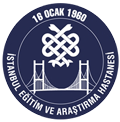ABSTRACT
Objectives:
The experience that has been achieved in the last two decades reveals that laparoscopic procedures, with acceptable surgical results, low complication rates and improved quality of life, are reasonable alternatives to open procedures. However, laparoscopic surgery is difficult to perform as it necessitates more technical skill and it has a longer learning curve. In this study, we aimed to evaluate the learning curve and factors that influence it in order to plan an appropriate learning curriculum for laparoscopic surgery.
Methods:
We retrospectively evaluated the laparoscopic renal procedures performed between 2004 and 2008 in our clinic in terms of rates of complication and conversion to open surgery.
Results:
The rates of conversion to open surgery were 15%, 28%, 10.2%, 10.5%, and 6.3%, respectively, from 2004 to 2008. As to the type of surgery, the rate of conversion was 8% in renal cystectomy, 11% in simple nephrectomy and 23% in radical nephrectomy. The complication rates were 20%, 25%, 13%, 18%, and 12% from the first year to the 5th, respectively. As a result, it was observed that after experience was gained in the initial two years and following participation in the laparoscopic course in the second year, the rates of perioperative complications and conversion to open surgery significantly decreased in the third and fourth years.
Conclusion:
The “master-apprentice” type of education that is currently used in traditional surgical education is not sufficient alone in the laparoscopic learning curriculum. In this regard, intensive educational courses in laparoscopy based on scientific planning are distinctly beneficial and should be encouraged.



